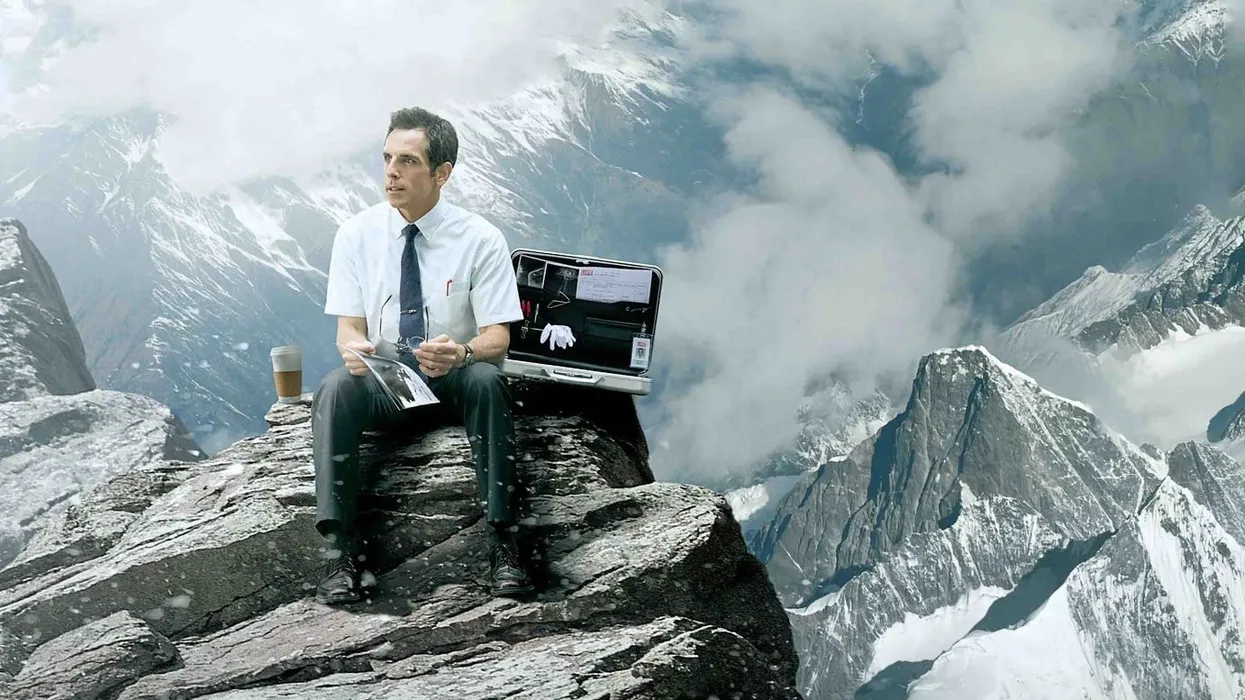How Development in Hollywood Has Changed to Burden Creatives
Studios complain a lot about risk, but they only measure it in money.

'The Secret Life of Walter Mitty'
One of the main issues writers face in modern Hollywood is the idea of risk. Studios say they are the ones risking the money, so they want to reap the rewards. They put up the budgets for expensive movies, so when a profit comes in, they see themselves as deserving.
But just one step before they put up the money are writers, who have to ideate these endeavors so that someone can put money behind them.
Writers across film and TV have been burdened with developing their own projects for no pay.
Let's go through just how this has happened.
The Way It Used To Be

'Casablanca'
Warner Bros.
So, how did development use to work in Hollywood? Back in the day, studios paid a premium for ideas. You could sell a logline and get the green light based on the concept alone.
If you were a writer or a director, you could take an idea to some producers. If they liked it, you might get an option or a sale. That would give you enough money to go off and write the spec or pilot based on the idea. The basic thought process was, executives existed to bring people with ideas into the studio. you would work in tandem to get a draft ready.
Then, if the studio liked it, they would package it. Then decide if they were going to greenlight it for production or not.
But that's not what happens now.
The Way It Is Now

'Chasing Amy'
Credit: Miramax
Nowadays, all the development is done for free by the writers. You have to get an idea fleshed out to perfection and create a spec script on your own before you can even think of bringing it to the studio.
So you're at home, working for no money, going on six months or a year, to try and get this idea on someone's desk.
While doing this, you earn a living by hopefully pitching on other projects, which you get paid no money to do unless you book one. If you're lucky, you have a rewrite or another step left on a contract that keeps money coming in while you work out your personal idea.
And you HAVE TO work this idea out. You need a spec script to remind execs you exist so you get sent ideas to pitch on anyway. If you're in TV, you need fresh samples from time to time to make sure you can book work in a writer's room.
On top of that, the studio wants you to do the packaging as well. That means you need to do the legwork to find a director or actors to attach so when you bring it in, it's a more attractive piece of material to purchase.
No one is buying ideas anymore. If you're lucky, you get an overall deal where you can come up with stuff and be paid a fee for it. But those are not easy to come by. You have to spend years in TV to find them.
The burden of carrying out all development along with ideation lands solely on the writer.
The Way It Should Be
 'The Batman'
'The Batman'Credit: Warner Bros.
So, what does a perfect world look like? Well, it is one where there is equitable pay for the development of these ideas. One where writers are paid residuals from studios on the hits they create.
Ideally, I'd love to find a Hollywood where more money is put into fostering new voices and ideas. I actually really like developing ideas with executives, but when you get paid nothing and they take home a salary, it's hard to slow down and let an idea gestate between you because you need rent money and they do not.
If I ran a studio, I would put a ton more money into overall deals. I would get many young writers working for me on yearly stipends to develop scripts and TV shows. and then I would have my executives overseeing a few of them, and assisting with packaging the ideas that seemed best or most ready. I would also make sure writers got payouts for the hits they produce.
As you can see, this is a complicated issue. Hollywood is ever-changing, and the pay structure rarely changes with the times as well. If studios cannot find a way to share the profits with writers, we're going to see more and more strife across the business. As studios take a huge chunk of revenue, unrest will continue.
The only way forward is fair and equitable compensation with residuals and a raising of the purchase price. I'd love to see a return to idea optioning and actual development, but they may be a thing of the past. Perhaps studios need to extend their overall deals to keep paid ideas coming in the door.
Regardless, Hollywood has changed, and it's hard to see where it is going.
Let me know your thoughts in the comments.











